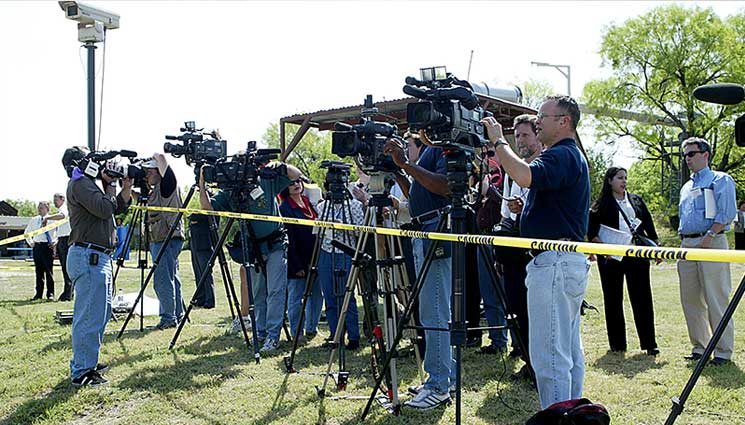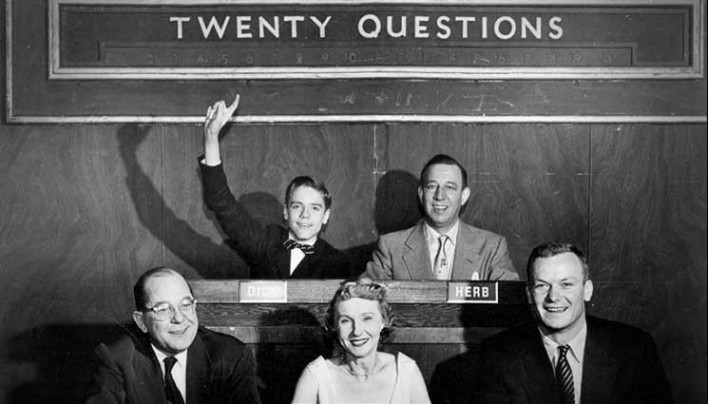3 Questions Regarding the Prepping Movement
I was approached via email back in June of this year by a reporter in New York State who was covering a local story about a man who had been killed in a gun accident. Apparently, the man was cleaning a shotgun and it was loaded. The shotgun went off and he died from a wound to the chest. What does that have to do with me you ask? The reporter said that this man along with many other things was a Prepper and he wanted to get some background about the Prepping Movement to accompany the other article about the accidental death of this man.
I was a little skeptical at first because I wasn’t seeing a clear correlation between the death and prepping from what he was telling me, so I asked for some additional information. I wanted to make sure that preppers weren’t negatively associated with this accident and I certainly didn’t want to enable any misrepresentation on my part. The reporter asked me three questions and I responded to him. I didn’t expect most of what I wrote to make it into the actual article; it never works that way but I did want to include them here on my site for our readers. I think there was one sentence from my response and another from a different article I wrote. The rest of the article was full of a lot of generalization and it doesn’t appear that this reporter interviewed anyone else. Actually, the article doesn’t even seem complete to me, but that is his job I guess, not mine.
One good thing about having a blog is that you get to write as much as you want so in this article I will include my responses in their entirety. This is my perspective on the questions I was asked about the Prepper Movement, why it is growing and how I would answer people who think the movement is fringe. This is how I responded to his three questions but I don’t mean to come off as being petty that he didn’t use more of my text. On the contrary, I just want to make my point a little clearer than you can with such a dynamic subject when you are limited to one sentence. So, here goes.
Why is being prepared a growing movement?
To understand why the Prepper movement is growing I should first describe what I think the movement is. Prepping just means taking steps to be better prepared for any unforeseen or unplanned events that can threaten the health, safety or well-being of yourself or those around you. What are people preparing for? The list can be pretty long and varies by person, region and situation, but at its heart; the movement is about empowering yourself. Being prepared to take care of your family or yourself when an emergency or disaster strikes, reduces the sense of helplessness so many people feel after a crisis. The helpless feeling usually comes from being unprepared for a particular situation and this is often for completely preventable reasons. Instead of depending on government agencies or the police or national guard to rescue you, you take that responsibility on yourself to a larger degree than most people choose to. Simply starting with the basics of food, water and personal security can mean the difference between life and death.
Why is prepping becoming so mainstream?
I think the desire to be more self-sufficient in an crisis or emergency is becoming more mainstream because we have so many examples where the people we are told to depend on have not been able to take care of themselves much less anyone else in a disaster. You only have to look at events like Hurricane Katrina or Hurricane Sandy to see examples of perfectly natural events destroying lives and leaving people without homes, power, food or gas for weeks and months. When banks close their doors for weeks in Cyprus and then the people are left with no options, it causes some to consider what they would do in a similar situation. People even 50 years ago were so much more self-sufficient than we as a society are now and I think there is a growing awareness that complete and total dependence on systems and processes that are fragile isn’t wise. I think it’s simply becoming harder to argue with the logic of having some level of preparedness.
What would I say to people who think it is a fringe movement?
There is nothing fringe about wanting to make sure your family has food when the grocery store shelves are empty or that you have money if the banks lock their doors. There isn’t anything fringe about a father wanting to protect his children if bad men come to bust down the door. If these people can explain how planning to take care of yourself if the power goes out, the gas stations are rationing gas and looters are breaking into houses next door due to a relatively minor storm, is somehow insane, I am all ears. Until someone can give me a rational reason why they believe that it is much wiser to do nothing and expect FEMA to show up, I don’t want to stop planning for alternatives. Until they can guarantee that the National Guard can fix everything in 24 hours or that despite repeated warnings from the police, that they should not be counted on in an emergency to protect you, I would rather do what I can to prepare myself and my family. Even the federal (via ready.gov) government says you should have a plan so really who is fringe?
Those were my responses, what would you say to a reporter?
I was approached via email back in June of this year by a reporter in New York State who was covering a local story about a man who had been




